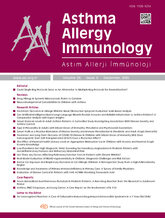


Objective: Atopic dermatitis (AD) is a chronic inflammatory skin disease characterised by immune dysregulation. Fc epsilon receptor I (FcεRI) plays a crucial role in AD pathogenesis by mediating IgE-dependent immune responses. This study aimed to investigate the role of free FcεRI in serum and its impact on white blood cell subsets in patients with AD.
Materials and Methods: A total of 110 AD patients aged 1–30 years were recruited from hospitals in Mosul between October 2024 and February 2025. Participants were divided into two age groups: children (1–15 years, n = 38) and adults (16–30 years, n = 32), with agematched healthy controls (n = 40). Blood samples were analysed for FcεRI levels using enzyme-linked immunosorbent assay and for white blood cell counts via CBC analysis.
Results: FcεRI levels were significantly higher in AD patients compared to controls (P ≤ 0.05), with children exhibiting higher concentrations than adults. Regression analysis revealed significant correlations between FcεRI levels and white blood cell subpopulations, including neutrophils, lymphocytes, and eosinophils.
Conclusion: These findings suggest that FcεRI contributes to the inflammatory profile of AD, with potential implications for autoimmune disease development. FcεRI may serve as a valuable biomarker for AD severity and immune dysregulation. Future studies should explore its therapeutic targeting to mitigate chronic inflammation in AD patients.